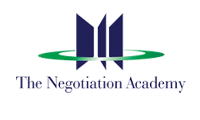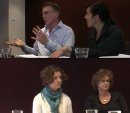Negotiation process - art or science?
| "Is the negotiation process viewed as an art or a science? If both, could you express it in percentages and explain why?" |
A Negotiation Expert Answered:
The negotiation process is both a science and an art. Like most things in life, there is a learning curve associated with achieving successful results. We dont believe that negotiation as a disciplinary science should exist in isolation, but should instead be interwoven with many other disciplines, including business and social sciences. Harvard University has been conducting formal research on all areas of negotiation; conflict resolution, business negotiation, labour negotiations etc since the late seventies. The Harvard Programme on Negotiation (PON) was created specifically to assist in the establishment of a systematic analysis framework to manage the issues relevant to negotiations. Whilst we at the Negotiation Academy-Australia keep abreast of developments from Harvard and other areas of academic research to inform and enrich our comprehensive negotiation methodology, we inform our methodology with many additional fields of study.
In an ever changing world, the nature and shape of negotiations have also changed. Negotiations have become more complex and we have had to design tools to assist us in dealing with these negotiations in a manner that is most likely to result in the desired outcome. Whilst there is a large amount of emperically based theory available on negotiation, the art becomes evident when we start to apply this theory to the practical negotiation environment with the added complexity of real people in varying negotiation contexts!
Consider for a moment the analogy of an amateur golfer to demonstrate the combination of art & science in negotiation. In learning to play golf, we can read as many books as we like on the sport, watch videos and other golfers, but until we start hitting some balls, well never acquire the skill of being able to play golf. In golf, we know that there exists a best way to play. How do you translate this golfing best practice emperically to circumstances including different varieties of grass, sand bunkers, inclement weather etc. So in golf too there is a big element of art involved in executing a golf swing accurately in all conditions, even though we have a solid understanding of the theory behind hitting the ball most effectively. Now compare the relatively static nature of golf, shot by shot, and the comparatively fluid ever changing nature of negotiations - influenced as in any chess game, by the other sides regular moves and changes in position.
In golf, as in negotiations, we find that the professionals spend more time practising their skills than the amateurs. If you love what you are doing, you can become a master, but there will always be plenty of room for improvement - just ask Tiger Woods!
Back to Negotiation Questions and Answers
We welcome the republication of this page's contents in part or full - we just ask that you include a clean link back to this site, to our www.negotiationtraining.com.au/training/ page.
|
Reader Comments
Average Reader Rating:
share your comment |
|
|
|






Reader Comments
Average Rating:
Total Comments: 1